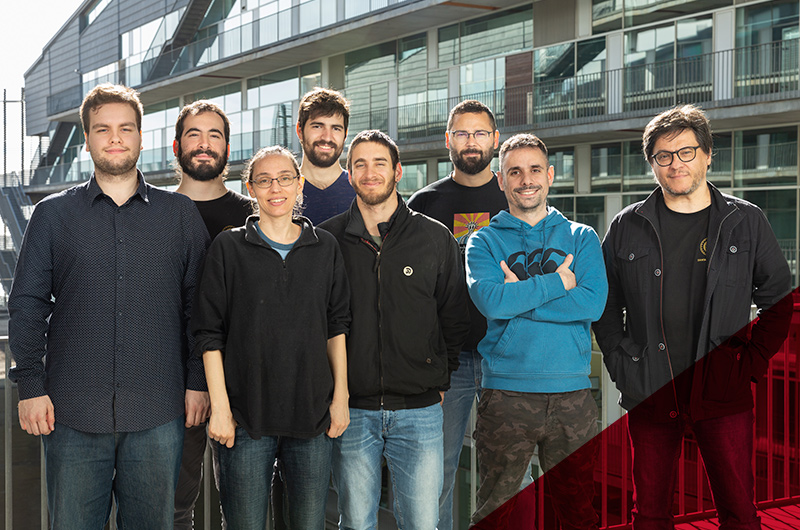Complex Systems
Ricard Solé

Group website
Research Outline
The ICREA-Complex Systems Lab is formed by an interdisciplinary team that explores the evolution of complex systems, both natural and artificial, in search of their common laws of organization. We do both theoretical and experimental work, working in close collaboration with the Santa Fe Institute (USA). Using methods from statistical physics, synthetic/systems biology and network theory, we study the origins and evolution of complex systems, the boundaries of such complexity and how to break them.
Current Projects
- Terraforming the biosphere
We explore the potential scenarios for the development of synthetic living motifs capable of engineering ecosystem responses in order to avoid catastrophic tipping points. Moreover, we also study potential no-living reactions that could contribute to make industrial metabolism to become more circular.
- Major synthetic transitions
We develop a theoretical framework seeking to understand the origins of innovations in biological systems based on their synthetic counterparts. This includes synthetic biology models of multicellularity or machine learning versions of evolved cognition or language.
- Liquid brains
We are exploring the landscape of computation/information processing capacities of cognitive networks were agents depart from the neuronal picture. This includes social insects, immune systems, microbiomes or robotic swarms.
- Evolution of complexity: stable and unstable
This theoretical research program involves the use of statistical physics and mathematical modelling of evolutionary processes that can trigger the emergence of complexity and open-ended evolution. This includes emergence of organisms, microbiomes, complex genomes and hierarchies.
Team during 2017-18
- Senior researchers: Josep Sardanyés, Sergi Valverde.
- Postdocs: Núria Conde, Raúl Montañez, Luís F. Seoane.
- PhD students: Guim Aguadé, Adriano Bonforti, Aina Ollé, Jordi Piñero, Blai Vidiella.
- Technicians: Arianna Bruguera.
Selected publications 2017-18
- Valverde, Sergi, Jordi Piñero, Bernat Corominas-Murtra, Jose Montoya, Lucas Joppa, and Ricard Solé. "The architecture of mutualistic networks as an evolutionary spandrel." Nature ecology & evolution 2, no. 1 (2018): 94.
- Corominas-Murtra, Bernat, Luís F. Seoane, and Ricard Solé. "Zipf’s law, unbounded complexity and open-ended evolution." Journal of the Royal Society Interface 15, no. 149 (2018): 20180395.
- Solé, Ricard, and Santiago F. Elena. Viruses as Complex Adaptive Systems. Vol. 6. Princeton University Press, 2018.
- Solé, Ricard V., Raul Montanez, Salva Duran-Nebreda, Daniel Rodriguez-Amor, Blai Vidiella, and Josep Sardanyés. "Population dynamics of synthetic Terraformation motifs." Royal Society open science 5, no. 7 (2018): 180121.
- Amor, Daniel R., Raúl Montañez, Salva Duran-Nebreda, and Ricard Solé. "Spatial dynamics of synthetic microbial mutualists and their parasites." PLoS computational biology 13, no. 8 (2017): e1005689.
Other relevant information 2017-18
Organisation of the Santa Fe Institute Workshop on “Liquid Brains, Solid Brains”, December 2017.
Keynote speaker:
- “Major synthetic transitions: from protocells to biosphere terraformation”
SynbioForum: engineering complex systems in biology
Old Divinity School, St. John's College, University of Cambridge, UK. October 29, 2018
- “Liquid brains, Solid Brains”
Workshop on: Distributed, Collective Computation in Biological and Artificial Systems
Janelia Research Campus, Washington USA. March 19, 2018
WATERLOO INSTITUTE FOR COMPLEXITY & INNOVATION
Waterloo, Canada. April 24, 2018
